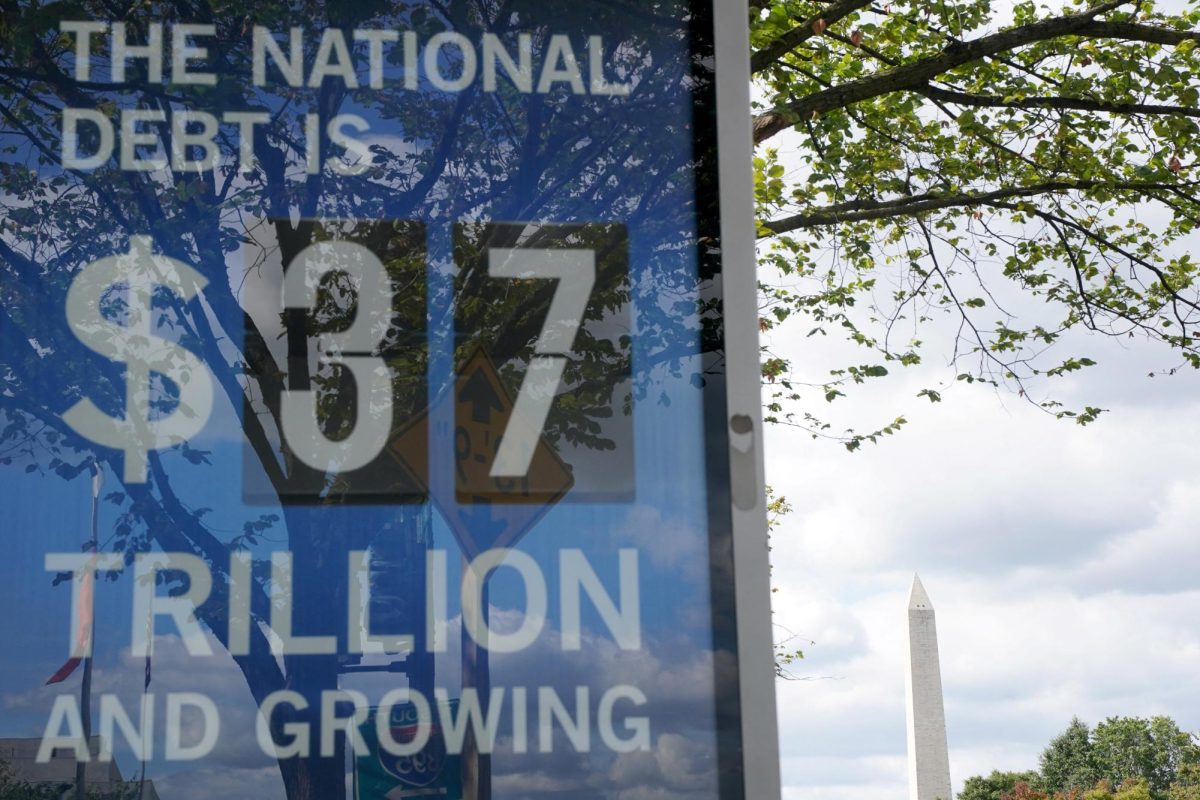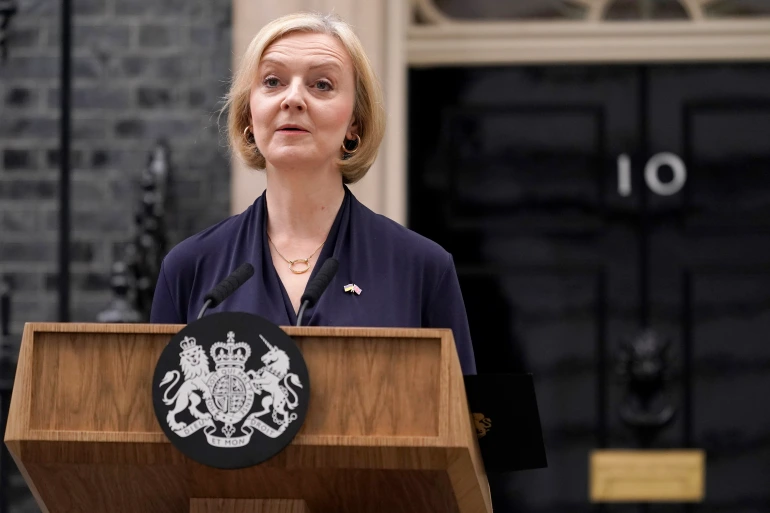UK Prime Minister
Photo of UK Prime Minister Liz Truss announcing her resignation. Truss resigned as a result from financial pressure unfolding while she was in office.
October 20th 2022 U.K. Prime Minister Liz Truss resigned from her position due to an ill planned economic agenda that threatened U.K. markets and her political career.
Truss resigned after only six weeks in office. This abrupt resignation landed her as the shortest lived Prime Minister in the U.K.
Her premiership was anything but smooth as she was confronted with the death of Queen Elizabeth II and turbulence within her own Conservative party regarding economic and government reform.
Truss and her political allies in the Conservative Party, specifically Chancellor Kwasi Kwarteng, proposed a mini-budget that would be proven as detrimental to both their careers and British markets.
This mini budget included a stack of harrowing tax cuts that immediately affected millions including financial markets. According to BBC News the “mini-budget” increased government borrowing and decreased the value of the pound to the dollar.
The plan disproportionately affected the lower and middle class population while it favored the wealthy. Truss’ popularity and public trust in the government’s ability to handle financial issues declined rapidly.
Truss’ short, yet, chaotic time in office has caused many criticisms about her management. Data journalist Peter Raven of YouGov.UK collected survey results from October 14-16 that concluded Truss’ overall favorable rating was 10% among Britons, showing disdain among the public regarding Truss and her policies.
British politicians showed outward disapproval toward Truss. Angela Reynar, Shadow Chancellor of the Duchy of Lancaster, tweeted, “A total dereliction of duty, scarily deluded and completely and utterly detached from reality. You can’t trust Liz Truss with Britain’s economy.”
Because of the tumultuous plan and Truss’ premiership, her resignation brought a glimmer of hope for a recall on the government and the budget.
After her sudden resignation, and new appointment of Jeremy Hunt as Chancellor, the “mini-budget” was almost completely reversed and a new Prime Minister is in the process of assuming office.
Rishi Sunak is set to become Prime Minister as the first of British and Punjabi Indian descent. Sunak announced he would delay any future plans to fix the economy as time is required for him to make “the right decisions”.
It’s clear that the hopes to find balance in the United Kingdom is a struggle that takes very precise planning and efficiency and it is not easy for any one person to fix. Time will tell what is in store for England’s financials and whether or not it will be able to recover soon.





















































